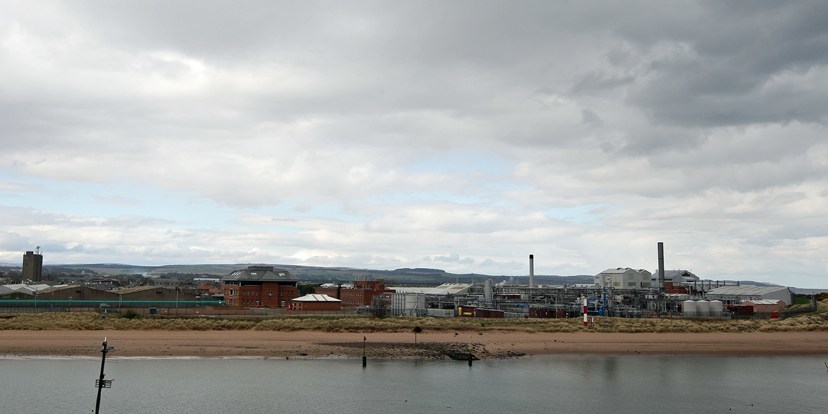The weak economy has yet to halt the surge in businesses that are “going green” and could even be accelerating the process, a Tayside body has said.
Dundee & Angus Chamber of Commerce chief executive Alan Mitchell believes that recent advances in eco-friendly business will not fall by the wayside just because companies are rushing to tighten their belts.
Councils and large firms across the UK have announced a string of swingeing cuts in recent months, in a bid to slash surging costs and stave off the worst of the downturn.
But although these cuts are expected to have dramatic effects on council services and the private sector, the Tayside body believes that “eco friendly” initiatives will actually benefit from the rush to slash costs.
Underscoring that view is the news that GlaxoSmithKline (GSK) is going ahead with its investigation of the possibility of wind and wave power meeting the future energy needs of its Montrose factory.
“The very fact that we are in an economic slow-down, and businesses are being careful about their costs, will mean that drives to be more eco-friendly will pick up steam,” said Mr Mitchell.
“Companies are already looking at different ways to cut travel and the amount of time spent by their staff on the region’s roads. Even just cutting back on office paper usage and looking to be more efficient will have environmental benefits.
“So on a day-to-day basis businesses are already looking at areas where they can cut back on costs and those areas will have eco-friendly benefits going forward,” he added.
Mr Mitchell did acknowledge that larger-scale eco-friendly initiatives might be temporarily shelved by some businesses as they bid to avoid unnecessary spending. But no such trends had been spotted in Tayside yet.
“Yes, the slow-down may have implications for a company’s more ambitious long-term environmental plans,” he continued. “The slow-down will bring mixed benefits to businesses.”
“There will be some eco advancements but, in temporary terms, the slow-down may also put some long-term projects on to the back burner.”
With an eye on rising energy costs and the environment, GSK has commissioned two studies into alternative energy opportunities as part of a drive to reduce the factory’s carbon footprint and boost its competitiveness.
The studies indicate that wind turbine and marine power generation technologies could help the site become carbon neutral and any surplus energy supplied off-site.
It could, for example, help Montrose’s proposed £10 million swimming pool to reduce its carbon footprint.
Meanwhile GSK has started work on a £2 million project to install the latest combined heat and power technology with the expectation it will come on stream later this summer.
A gas engine unit, which generates electricity and provides “free” heat as a by-product, will cut energy bills by an estimated £350,000 per year and reduce carbon dioxide emissions by 2700 tonnes annually.
